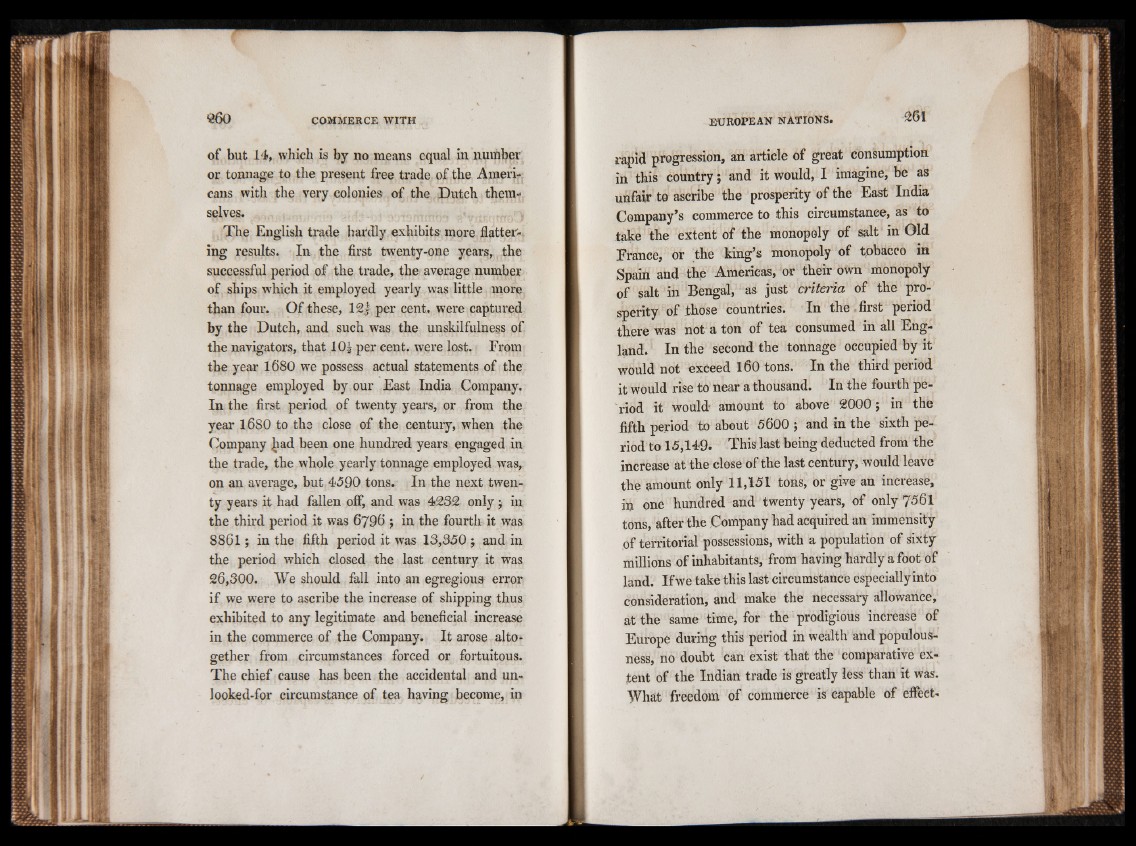
of but 14, which is by no means equal in number
or tonnage to the present free trade of the Americans
with the very colonies of the Dutch themselves.
The English trade hardly exhibits- more flattering
results. In the first twenty-one years, the
successful period of the trade, the average number
of ships which it employed yearly was little more
than four. Of these, 12| per cent, were captured
by the Dutch, and such was the unskilfulness of
the navigators, that 10| per cent, were lost. From
the year 1680 we possess actual statements of the
tonnage employed by our East India Company.
In the first period of twenty years, or from the
year 1680 to the close of the century, when the
Company £ad been one hundred years engaged in
the trade, the whole yearly tonnage employed was,
on an average, but 4590 tons. In the next twenty
years it had fallen off, and was 4232 only j in
the third period it was 6796 ; in the fourth it was
8861 j in the fifth period it was 13,350 j and in
the period which closed the last century it was
26,300. We should fall into an egregious error
if we were to ascribe the increase of shipping thus
exhibited to any legitimate and beneficial increase
in the commerce of the Company. It arose altogether
from circumstances forced or fortuitous.
The chief cause has been the accidental and unlooked
for circumstance of tea having become, in
rapid progression, an article of great consumption
in this country j and it would, I imagine, be as
unfair to ascribe the prosperity of the East India
Company’s commerce to this circumstance, as to
take the extent of the monopoly of salt in Old
France, or the king’s monopoly of tobacco in
Spain and the Americas, or their own monopoly
of salt in Bengal, as just criteria of the prosperity
of .those countries. In the. first period
there was not a ton of tea consumed in all England.
In the second the tonnage occupied by it
would not exceed 160 tons. In the third period
it would rise to near a thousand. In the fourth period
it would- amount to above 2000; in the
fifth period to about 5600; and in the sixth period
to 15,149. This last being deducted from the
increase at the close of the last century, would leave
the amount only 11,151 tons, or give an increase,
in one hundred and twenty years, of only 7561
tons, after the Company had acquired an immensity
of territorial possessions, with a population of sixty
millions of inhabitants, from having hardly afoot of
land. If we take this last circumstance especially into
consideration, and make the necessary allowance,
at the same time, for the prodigious increase of
Europe during this period in wealth and populousness,
no doubt can exist that the comparative extent
of the Indian trade is greatly less than it was.
What freedom of commerce is capable of effect